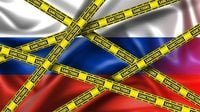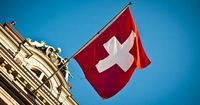Switzerland has officially joined the European Union's sanctions against eight Russian media outlets, marking a significant move in the ongoing response to Russia's actions in Ukraine. The Swiss Federal Department of Economic Affairs announced that these restrictions will come into effect on Wednesday, April 23, 2025.
This decision aligns Switzerland with the EU's 16th package of sanctions, which was adopted on February 24, 2025, coinciding with the third anniversary of Russia's full-scale invasion of Ukraine. The EU's measures included the suspension of broadcasting licenses for the targeted Russian media outlets, which are believed to play pivotal roles in promoting and supporting Russia's military aggression and destabilizing neighboring countries.
The eight Russian media organizations affected by these sanctions are EADaily/Eurasia Daily, Fondsk, Lenta, NewsFront, RuBaltic, SouthFront, the Strategic Culture Foundation, and Krasnaya Zvezda/TVZvezda. The Swiss government's statement detailed that eight organizations have been added to Annex 25 of the Ordinance on Measures Connected with the Situation in Ukraine, while updates were also made to the existing records of 158 individuals and organizations listed in Annex 8.
According to a statement reported by Radio Liberty, the Swiss government emphasized the importance of these measures in maintaining pressure on Russia amid its ongoing military operations. The announcement reflects Switzerland's commitment to aligning its foreign policy with that of the European Union, particularly in matters concerning international security and human rights.
As tensions continue to escalate in Eastern Europe, the sanctions serve as a reminder of the international community's stance against Russia's actions. The EU's decision to suspend the broadcasting licenses of these media outlets was based on their perceived role in disseminating propaganda that supports the Russian government's military objectives.
In recent months, the EU has taken a series of steps to bolster its sanctions regime against Russia, focusing on various sectors, including finance, energy, and media. These actions aim to undermine Russia's ability to sustain its military efforts and to hold accountable those who facilitate its aggressive policies.
Switzerland's participation in these sanctions is particularly noteworthy given its historical stance of neutrality. However, the Swiss government has increasingly recognized the need to respond to global security threats, particularly those posed by Russia's actions in Ukraine.
In addition to the sanctions on media outlets, the EU's 16th package of sanctions includes various measures targeting sectors that contribute to Russia's military capabilities. These comprehensive restrictions aim to limit Russia's access to critical resources and technologies that could support its military operations.
Experts suggest that the sanctions on media outlets could have a significant impact on the Russian government's ability to control the narrative surrounding the war in Ukraine. By limiting the reach of these organizations, the EU and its allies hope to reduce the dissemination of disinformation and propaganda that fuels support for the conflict.
The Swiss Federal Department of Economic Affairs has reiterated its commitment to international cooperation in addressing security challenges. The recent alignment with EU sanctions underscores a broader trend among countries to unite against aggression and uphold democratic values.
As the situation in Ukraine remains fluid, the international community is closely monitoring developments. The effectiveness of these sanctions will depend on their implementation and the willingness of other nations to join in solidarity against Russian aggression.
In summary, Switzerland's decision to join the EU sanctions against Russian media outlets represents a significant shift in its foreign policy. The move reflects a growing recognition of the need for collective action in response to threats to international stability and security.
As the conflict in Ukraine continues to unfold, the implications of these sanctions will be felt not only in Russia but also across Europe and beyond, as countries grapple with the challenges posed by disinformation and the ongoing war.
Ultimately, the alignment of Switzerland with EU sanctions highlights the importance of a united front in addressing global security issues and the role that media plays in shaping public perception and policy.






